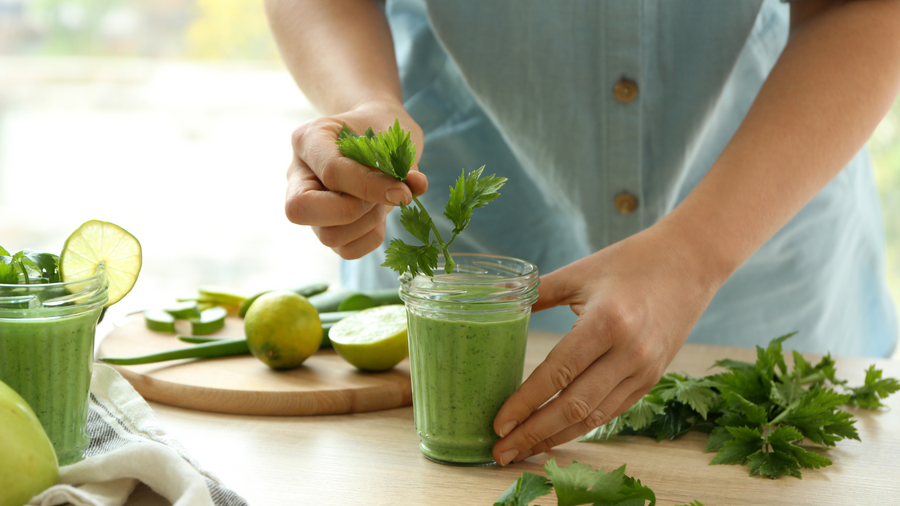Coffee, just like any other product, has organisms that diminish its flavor and quality. Farmers prevent any insect infestation to your coffee beans by using chemically formulated pesticides and insecticides. They also use synthetically-made fertilizers for faster tree growth. However, studies have shown that these chemicals may cause health problems. [1] Thus, the need for organic coffee arose.
What is Organic Coffee?
When we say 'organic', we mean products not grown using chemically formulated pesticides, fertilizers, or insecticides. For example, produce and meat from plants and animals not grown with harmful chemicals are considered organic. However, there is more to organic farming than just chemical-free produce.
In the US, organic products have to be certified by the US Department of Agriculture and National Organic Program (USDA NOP), pass agency criteria, and be labeled as organic. According to USDA NOP, this makes consumers make empowered decisions on the food they intake and assure that products stay organic at all stages of distribution, organic from farm to table. [2]
Origin of Organic Coffee Beans
Drinking coffee is a beautiful experience. You get to feel alive and warm at the same time. If you love your coffee, you will want to know the origin of your organic coffee beans.
Just like non-organic coffee, these coffee beans can be of single-origin or a blend.
- Single Origin Organic Coffee. Organic coffee that's considered a single-origin comes from a single specific source. You can trace single-origin organic coffee to a particular geographic region, a farmer's collective, or even a single farm.
- Blend Organic Coffee. On the other hand, blended coffees combine beans from multiple sources to create a specific desired profile.
The flavor of the coffee you drink can be affected by the soil from where it's grown. Many people prefer single-origin organic coffee purely because the flavor is more distinct due to the soil. But, it is also according to your preference of whether you enjoy the earthy aroma or not.
Organic Coffee vs. Traditional Coffee
Before drinking, we think about the flavor and aroma of the coffee we're about to intake. The most striking difference, though, is how the coffee was grown from the farm to your coffee cup.
The practice of growing coffee can be organic or non-organic. Organic coffee growing methods involve full sunlight, promoting rapid development and, ultimately, a greater yield of coffee beans. Conventional or traditional coffee is produced with the aid of synthetic fertilizers and other chemicals.
Here are some differences between organic coffee practices and conventional or traditional coffee.
- Organic coffee is free from chemicals such as pesticides, fungicides, herbicides as well as synthetic fertilizers. Non-organic coffee, on the other hand, contains these chemicals.
- Organic coffee can only be grown in partial sunshine, but conventional coffee must be grown in direct sunlight.
- Because of its chemical-free cultivation, organic coffee beans and trees have a lower chance of developing a disease, unlike conventional coffee trees.
- Organic coffee is packed with natural nutrients, vitamins and minerals, unlike non-organic coffee, where natural compounds get lost during cultivation.
With the effects of chemicals in produce studied in academe, more and more people change into consuming organic coffee. Other than being chemical-free, there are benefits of coffee you can take.
Organic Coffee Benefits
Lose weight easier
Organic coffee can aid people in their weight loss journey. Now, you should not mistake organic coffee for the green coffee weight loss scam. We are talking about the organic coffee effect on athletic performance because caffeine allows the body to burn calories faster, giving the body more energy for working out. [3,7]
Boost hormonal balance
Browsing the Internet may lead to people saying coffee is bad for the body's hormones. However, that's not always the case. Yes, organic coffee can increase your HPA hormones, but it can also improve other helpful hormones in the body. Studies suggest that organic coffee may lower the risk of breast cancer. It does this by increasing the CYO1A2 isoenzyme in the body, which improves the metabolism of estrogen. [4] Caffeine consumption through a coffee can also change estrogen levels in women. Long-term consumption of organic coffee may cause long-term effects on estrogen levels, necessary for studying women's diseases such as endometriosis. [5]
Improve heart performance
Another health benefit of coffee is for your heart. Preliminary research shows that every cup of organic coffee per day can reduce the risk of heart failure by 7%, stroke by 8% (a whopping 20% for women), and coronary heart disease by 5%. [6, 7] So every time you drink your espresso or Americano, you're shying away from heart malfunctions.
Stimulates brain function
A recent study proves how organic coffee improves brain memory function. The study showed that people could be resistant to forgetting for up to 24 hours through caffeine intake. [8] As a result, you will be able to remember many details from after you drink your coffee until the next day, compared to when you didn't have any coffee at all.
Source of anti-oxidants
Coffee is an excellent source of anti-oxidants, which are molecules that fight off free radicals in the body and support the immune system. These free radicals may cause us harmful effects when their amounts in the body are excessive. However, not all cups of coffee have the same amount of anti-oxidants. Recent studies have shown that organic coffee contains more antioxidants than conventional coffee. [9, 10, 11] This means that more substances can fight free radicals in your body, thus making you more healthy.
Prevents depression
Depression is a hard-to-fight illness. It affects relationships and lifestyles among people. Studies show developments on how certain drinks such as coffee can reduce the risk of getting depression. Evidence suggests that organic coffee's anti-inflammatory, anti-oxidative, and microbiome-promoting properties positively affect mental health. [12] So next time you drink your morning coffee, you get a step away from having depressive episodes.
Environmental Benefits of Organic Coffee
Promotes fair trade
Fair trade and organic brands go hand-in-hand. Although their purposes are different, both fair trade and organic coffee aim to empower farmer-producers and consumers. [13] People would often see that certified organic coffee is also certified with fair trade organizations. This correlation makes the farmer-producer become more in control of production while aiding the coffee drinker to be more economically empowered.
Supports local farming
More attention is paid to local farmers because organic coffee is usually of single-origin. A lot of local farmers engage in organic farming because it's less expensive. When people patronize organic coffee, they can support local farmers and boost production.
Avoid synthetic fertilizers
Chemical- and synthetic fertilizer-free products are central to organic products. Organic coffee is one of them. When the coffee is labeled as organic and certified by the USDA NOP, one can assure that no chemicals contact the coffee beans and trees while they are growing.
Foster sustainability
Together with fair trade, organic farming is all about promoting sustainability in trading - both for the farms and the planet. In its current state, society has to develop ways of producing consumer products that consider the conditions of the next generations. With coffee from organic farming, consumers can be rest assured that the soil remains healthy for the following years to come as organic coffee production protects the environment.
Your choice
Coffee drinkers have always been conscious of the coffee they drink. They are aware of its effects on their bodies and the process that the coffee undergoes. As the years passed, the call for organic coffee arose, and more and more people were joining in. If you're still confused about whether to buy that pack of coffee or not, we hope the benefits of organic coffee that we mentioned can help you decide. Optimize your health with our smoothies or new lattes!
References:
[1] Nicolopoulou-Stamati, P. (2016). Chemical Pesticides and Human Health: The Urgent Need for a New Concept in Agriculture. Frontiers. https://www.frontiersin.org/articles/10.3389/fpubh.2016.00148/full
[2] Organic 101: What the USDA Organic Label Means. (2012, March 22). USDA. https://www.usda.gov/media/blog/2012/03/22/organic-101-what-usda-organic-label-mean
[3] Thompson, T. (2018, May 10). Can You Lose Weight with Organic Coffee or Is That a Hoax? Buy Organic Coffee. https://buyorganiccoffee.org/1981/lose-weight-with-organic-coffee/
[4] Walsh, B. (n.d.-b). Coffee and hormones: Here’s how coffee really affects your health. Precision Nutrition. https://www.precisionnutrition.com/coffee-and-hormones
[5] NIH Study shows caffeine consumption linked to estrogen changes. (2015, July 27). National Institutes of Health (NIH). https://www.nih.gov/news-events/news-releases/nih-study-shows-caffeine-consumption-linked-estrogen-changes
[6] MacMillan, A. (2017, November 13). Here’s Another Reason to Feel Good About Drinking Coffee. Time. https://time.com/5022060/coffee-health-benefits-heart/
[7] Gunnars, K. B. (2018, September 20). 13 Health Benefits of Coffee, Based on Science. Healthline. https://www.healthline.com/nutrition/top-13-evidence-based-health-benefits-of-coffee
[8] Gatlin, L. (2014, January 12). Caffeine has positive effect on memory, Johns Hopkins researchers say. The Hub. https://hub.jhu.edu/2014/01/12/caffeine-enhances-memory/
[9] Ozuna C., Mulík S., Valdez-Rodríguez B., Abraham-Juárez M.D.R., Fernández-López C.L. The effect of organic farming on total phenols, total flavonoids, brown compounds and antioxidant activity of spent coffee grounds from Mexico. Biol. Agric. Hortic. 2019:1–12.
[10] Król K., Gantner M., Tatarak A., Hallmann E. The effect of roasting, storage, origin on the bioactive compounds in organic and conventional coffee (Caffea arabica) Eur. Food Res. Technol. 2019;246:33–39. doi: 10.1007/s00217-019-03388-9.
[11] Górecki, M., & Hallmann, E. (2020). The Antioxidant Content of Coffee and Its In Vitro Activity as an Effect of Its Production Method and Roasting and Brewing Time. Antioxidants (Basel). Published. https://doi.org/10.3390/antiox9040308
[12] Coffee can reduce depression risk by up to one-third. (2020, May 8). National Coffee Association USA. https://www.ncausa.org/Newsroom/Coffee-can-reduce-depression-risk-by-up-to-one-third
[13] Lee, Y., & Bateman, A. (2021). The competitiveness of fair trade and organic versus conventional coffee based on consumer panel data. Ecological Economics, 184, 106986. https://doi.org/10.1016/j.ecolecon.2021.106986










